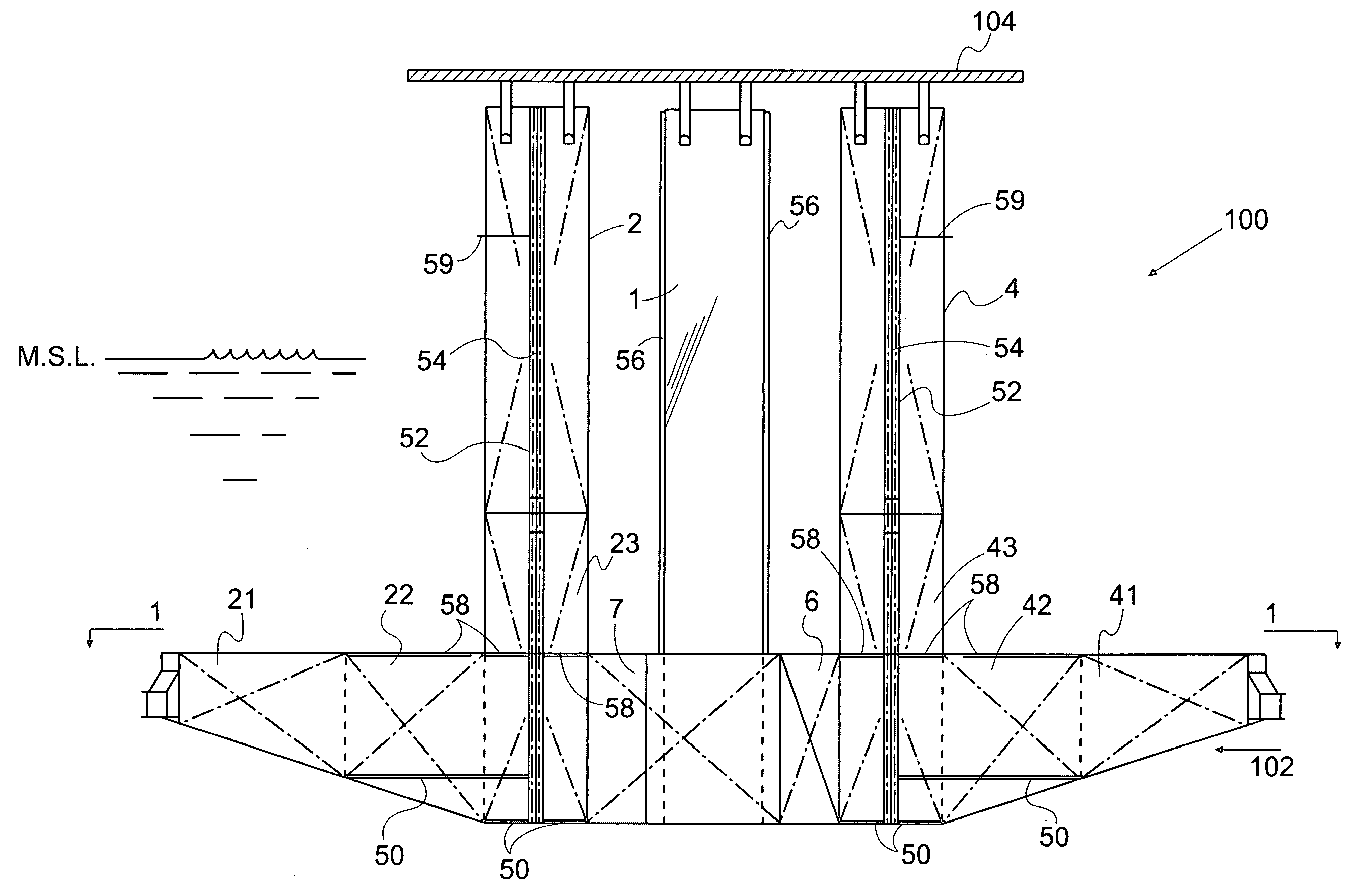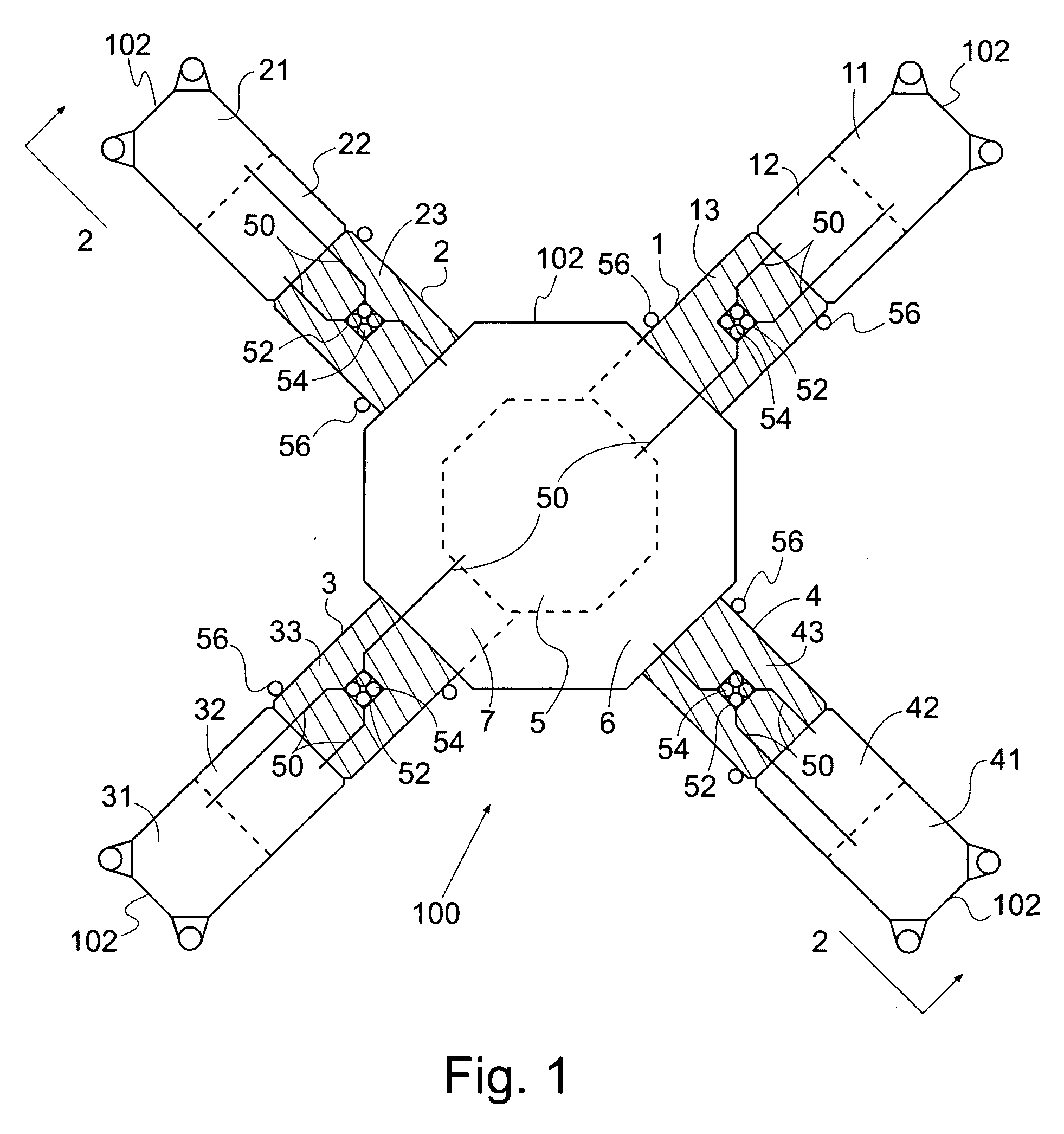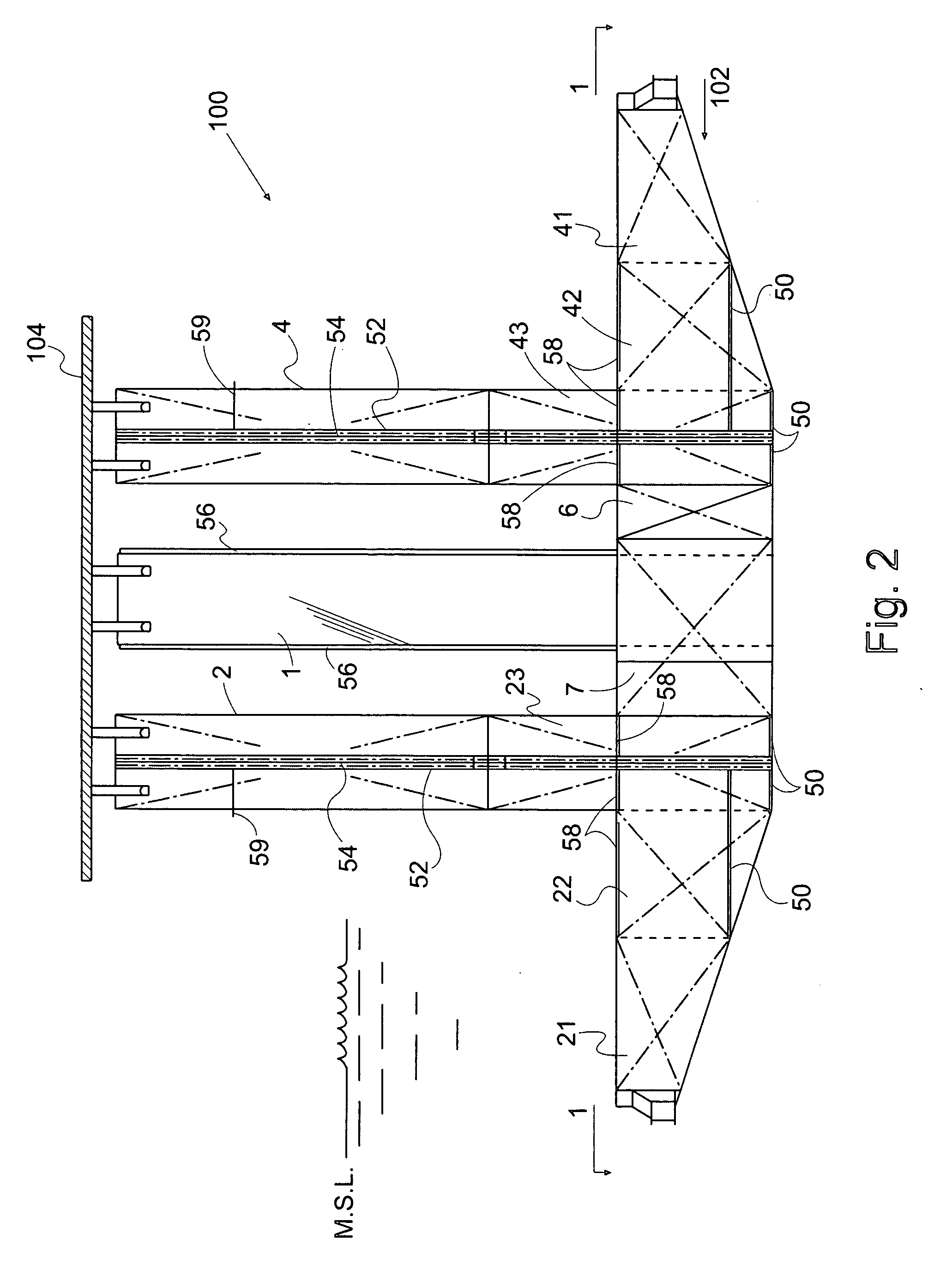Ballast system for tension leg platform
a technology of tension leg and ballast system, which is applied in the direction of special purpose vessels, vessel parts, vessel construction, etc., can solve the problems of high-capacity requirements, associated instruments and controls that require inspection, maintenance, repair and/or replacement, and are longer subjected to high-capacity requirements
- Summary
- Abstract
- Description
- Claims
- Application Information
AI Technical Summary
Benefits of technology
Problems solved by technology
Method used
Image
Examples
Embodiment Construction
[0019] As shown in FIGS. 1 and 2, the ballast and de-ballast system is preferably employed in a tension leg platform (TLP) 100 having four columns 1, 2, 3, 4 supporting a deck 104 and a hull 102. The hull 102 has fifteen internal ballast tanks. There are four permanent ballast tanks 11, 21, 31, 41 that are the most outboard tanks in the hull 102. There are eleven tanks within the hull 102 used only temporarily for towing and installation of the TLP to the tendons: Four of these temporary ballast tanks 12, 22, 32, 42 are located immediately inboard of the four permanent ballast tanks 11, 21, 31, 41; four temporary ballast tanks 13, 23, 33, 43 are located at the base of the columns 1, 2, 3, 4, respectively; the three central tanks are the base center tank 5, the wing tank east 6, and the wing tank west 7.
[0020] The ballast tanks are accessed through the four columns 1, 2, 3, 4 of the TLP 100. Each column 1, 2, 3, 4 contains four individual pump caissons 54. Preferably, the pump caisso...
PUM
 Login to View More
Login to View More Abstract
Description
Claims
Application Information
 Login to View More
Login to View More - R&D
- Intellectual Property
- Life Sciences
- Materials
- Tech Scout
- Unparalleled Data Quality
- Higher Quality Content
- 60% Fewer Hallucinations
Browse by: Latest US Patents, China's latest patents, Technical Efficacy Thesaurus, Application Domain, Technology Topic, Popular Technical Reports.
© 2025 PatSnap. All rights reserved.Legal|Privacy policy|Modern Slavery Act Transparency Statement|Sitemap|About US| Contact US: help@patsnap.com



